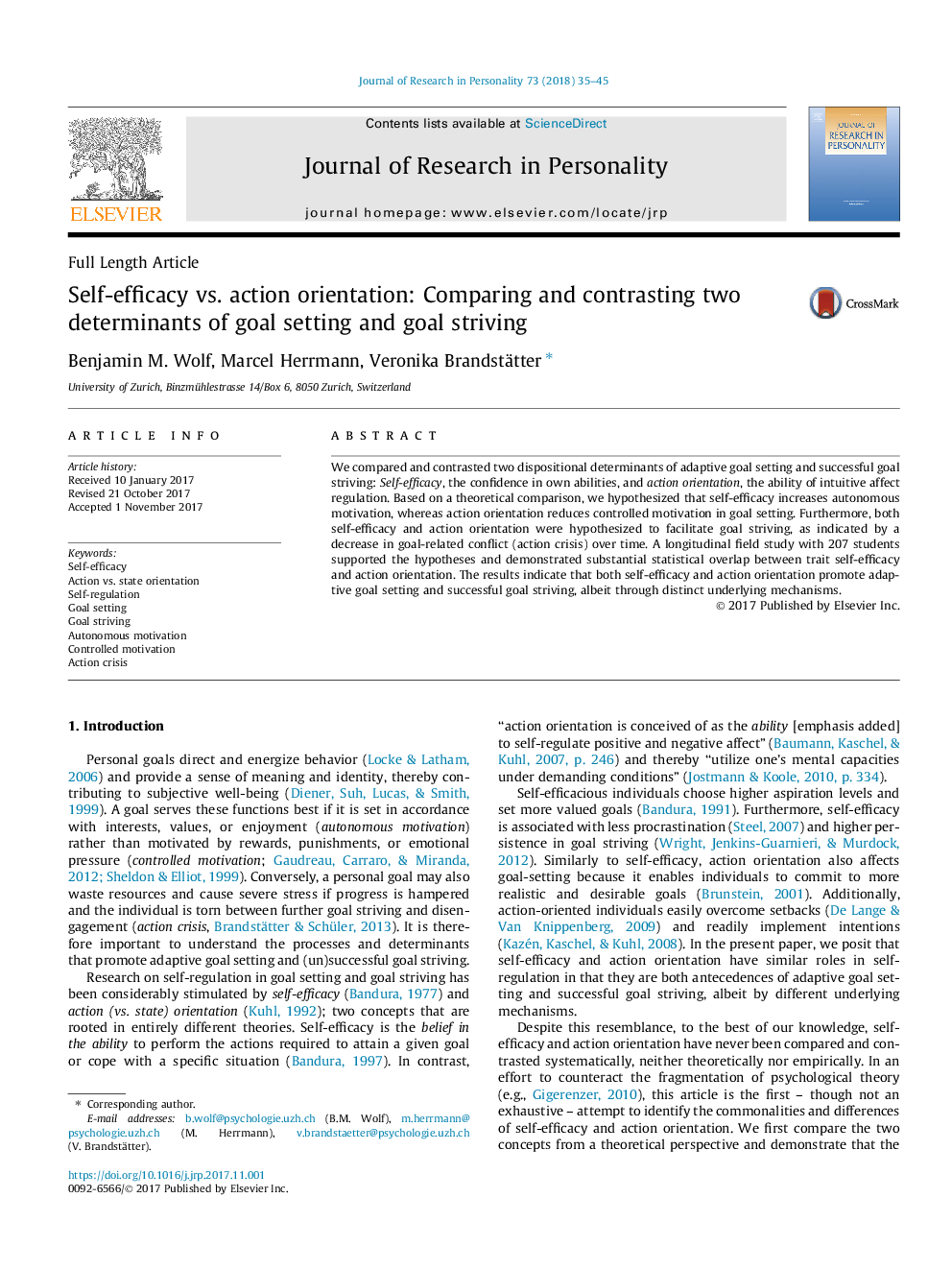ترجمه فارسی عنوان مقاله
خودکارآمدی در مقابل عملکرد: مقایسه و کنترلی دو عاملی که در تنظیم هدف و هدف تلاش می کنند
عنوان انگلیسی
Self-efficacy vs. action orientation: Comparing and contrasting two determinants of goal setting and goal striving
| کد مقاله | سال انتشار | تعداد صفحات مقاله انگلیسی |
|---|---|---|
| 112521 | 2018 | 11 صفحه PDF |
منبع

Publisher : Elsevier - Science Direct (الزویر - ساینس دایرکت)
Journal : Journal of Research in Personality, Volume 73, April 2018, Pages 35-45
ترجمه کلمات کلیدی
خود کارآمدی، اقدام در مقابل جهت گیری دولت، خود تنظیم تعیین هدف، هدف تلاش، انگیزش مستقل، انگیزه کنترل شده، بحران عمل،
کلمات کلیدی انگلیسی
Self-efficacy; Action vs. state orientation; Self-regulation; Goal setting; Goal striving; Autonomous motivation; Controlled motivation; Action crisis;
ترجمه چکیده
ما در مقایسه با دو عامل تعیین کننده در تنظیم هدف تطبیقی و تطبیق هدف موفقیت آمیز بود: خود کارآمدی، اعتماد به نفس در توانایی های خود، و جهت گیری عمل، توانایی تنظیمات تاثیر بصری. بر اساس یک مقایسه تئوریک، ما فرض کردیم که خود کارآیی، انگیزه مستقل را افزایش می دهد، در حالی که جهت گیری عمل، انگیزه کنترل شده را در تنظیم هدف کاهش می دهد. علاوه بر این، هر دو خودکارآمدی و جهت گیری عملی، برای تسهیل هدف، تضعیف می شوند، که نشان دهنده کاهش درگیری های مربوط به هدف (بحران عمل) در طول زمان است. مطالعات میدانی با 207 دانش آموز از این فرضیه ها حمایت کردند و همبستگی آماری قابل توجهی بین خودآمدی صفت و جهت گیری عمل نشان داد. نتایج حاکی از آن است که هر دو خودکارآمدی و گرایش عمل، هدف تطبیقی هدف و اهداف موفق را تحقیر می کنند، هرچند از طریق سازوکارهای متمایز اساسی.

